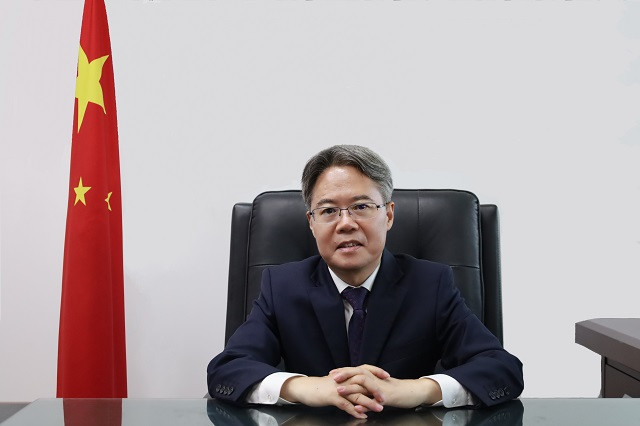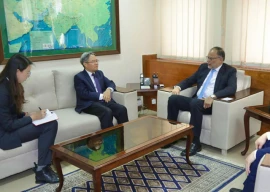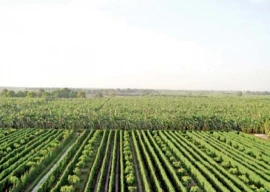
Chinese Ambassador to Pakistan Jiang Zaidong elucidated on the concept of "new quality productive forces" and its implications for the transformative collaboration between China and Pakistan.
According to Ambassador Zaidong, this concept, introduced by Chinese President Xi Jinping in September 2023, underscores the fusion of innovation, technology, and industry to drive sustainable development and prosperity.
At its core, the vision recognises innovation as the catalyst for progress in the 21st century. President Xi Jinping's advocacy for integrating scientific and technological resources stresses leveraging advancements in these fields to enhance productivity and spur the emergence of new industries and economic sectors.
Ambassador Zaidong stated, “New quality productive forces are characterised by innovation; the key lies in high quality, the essence is advanced productivity.”
Read also: Pakistan, China deepen cooperation on CPEC Phase-2
This approach aligns with China's pursuit of high-quality development, evident in its resilient economy, which surpassed 126 trillion yuan ($17.51 trillion) in GDP in 2023, with a growth rate of 5.2%, ranking among the world's major economies.
Looking forward to 2024, coinciding with the 75th anniversary of the founding of the People's Republic of China,
Ambassador Zaidong outlined China's strategic focus. With a target GDP growth rate of around 5%, the emphasis remains on modernising the industrial sector and advancing new quality productive forces.
China's role as a global economic powerhouse and agent of positive change is underscored by Ambassador Zaidong.
The envisioned advancements not only bolster China's economy but also offer opportunities for international cooperation and mutual prosperity, with Pakistan recognised as "our iron-clad friend."
Read: Pakistan, China vow 'enhanced cooperation' on CPEC projects
For Pakistan, this partnership holds profound implications. Ambassador Jiang underscored the country's strategic importance, demographic dividend, and abundant natural resources, highlighting its potential for development. Aligning Pakistan's "5Es" framework with China's vision can unlock its full potential and chart a path toward self-reliance and sustainable growth.
Central to China-Pakistan collaboration is the successful implementation of CPEC Phase One, yielding dividends in renewable energy, information technology, and biotechnology. As CPEC enters Phase Two, both nations are committed to elevating the corridor, leveraging Pakistan's advantages for self-reliance and sustainable growth.
Ambassador Zaidong noted Pakistan's ongoing reforms and the orderly formation of a new government, signaling renewed focus on national development. China reaffirmed its unwavering support for Pakistan's reform agenda, pledging to implement key consensus reached by the leadership of both countries.
In conclusion, Ambassador Zaidong expressed China's readiness to work with Pakistan to implement important consensus, promoting integration of CPEC's "Five Corridors" and Pakistan's "5Es" framework, fostering a closer China-Pakistan community and opening a future of peace, development, and win-win cooperation.




















COMMENTS (1)
Comments are moderated and generally will be posted if they are on-topic and not abusive.
For more information, please see our Comments FAQ